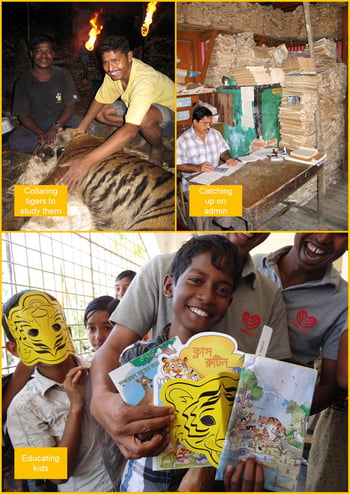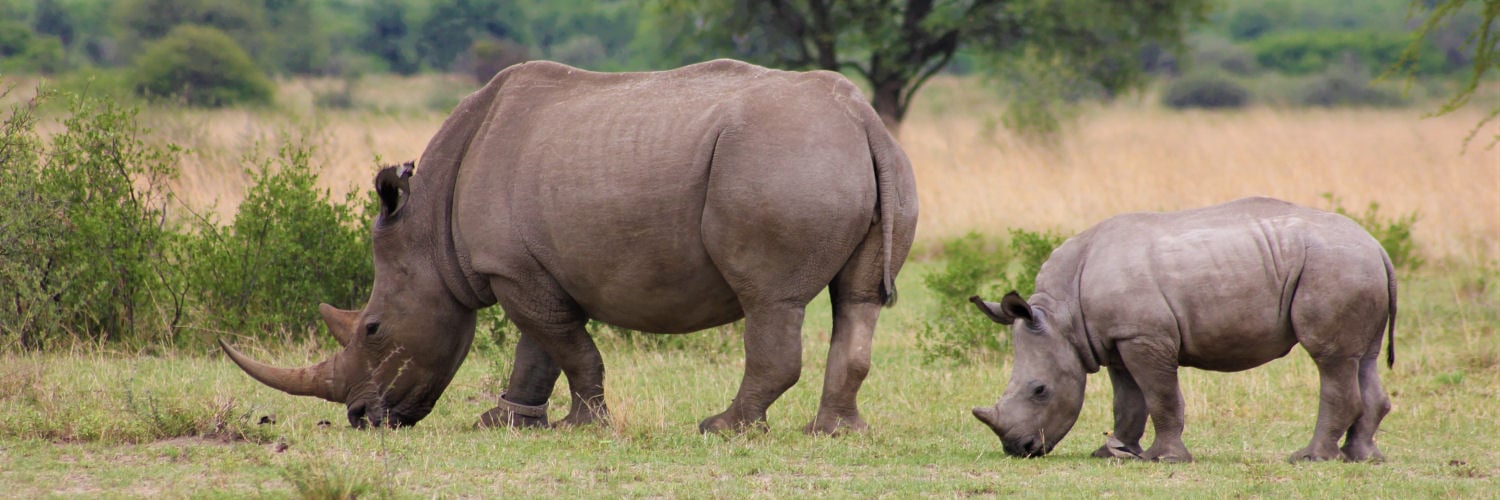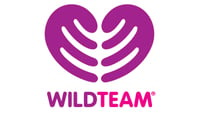Adam Barlow, Executive Director, WildTeam UK
I have worked in wildlife conservation for about 2 decades, starting with volunteer work with sea turtles, moving on to studying tigers, then helping to create and work for conservation NGOs. I have been incredibly fortunate to have had such amazing opportunities, so in this article I share some lessons I have learnt along the way that may help others wanting to pursue a similar path.

1. It's never too early to start
If you're still at school and have a passion for wildlife then try to get in amongst nature as much as possible. In a big city it may be very difficult to find anywhere particularly wild, but a garden, allotment, or local park may have more wildlife than you expect. Lots of wildlife is hidden in plain sight and may seem unimportant to most people walking past, but if you pay attention then a spider making a web outside your bedroom window or sparrows picking up crumbs off a table can become fascinating. The more you can connect to others with similar interests, the more you'll enjoy your experiences and the faster you will learn. Love for wildlife naturally builds interest and the motivation to save it. That is why the proposed new GCSE in Natural History could be a great starting point for the conservationists of tomorrow.

2. You don’t have to be a scientist
The natural history programmes on TV are generally focused on nature and how it works. A common view of what it's like to be a wildlife conservationist is that they spend a lot of time walking around forests, hanging out with rhinos or watching humpback whales just a few metres from their boat. Being close to and studying wildlife is only one type of wildlife conservation and is only half the picture, the other is studying the people whose behaviours are affecting the wildlife. Scientists collect valuable information that help us understand what wildlife needs to survive, but there is a wide range of other conservation jobs that require different skills. Nearly every type of skill you can think of is needed, or can be adapted, to help save wildlife. Just like a business, a conservation organisation needs HR experts, fundraisers, accountants, communications experts, and many managers. Depending on the type of work it does it may also need campaigners, trainers, app developers, business analysts, law enforcement specialists, field workers, and community engagement experts. So everyone will have a skill that can help save wildlife.
3. A strong CV helps open doors
Competition for conservation jobs is fierce. There are more and more people trying to pursue such a career and not that many jobs available, so you will sometimes be competing with 100s other applicants for a particular position. Making your CV stand out is very important. Employers are looking primarily to see if you can do the job at hand, and what you will be like to work with. So everything about your CV counts, from the structure and length, to the content and format. You need to draw an employer's attention towards the information they want to see. For conservation jobs you need to show passion, professionalism, job-specific skills, achievements, and experience. Each CV needs to be tailored to the job you are applying for and look amazing. It can be difficult and sometimes expensive to gain relevant experience, but you can do a lot to build up your professional skills through online courses like the ones my charity (WildTeam) provides.
4. Your network makes you stronger
Having a wide and varied personal network of conservationists can help you start and progress your career. Your network will help you identify job and experience opportunities and the positive relationships you build through learning and collaborating will enable you to scale up the type of conservation work you feel most passionate about. If conservation is your passion, you're more likely to throw yourself into it to the extent that you may become overworked and stressed. Your network can provide you with the social support you need to get through these tough patches and also provide you with the opportunity to share your time, empathy, and suggestions with others. To grow your network you'll have to look outside of your school or place of work. Events, conferences, societies, and clubs are great opportunities to meet people and there are many websites and pages too. There are Facebook and Linkedin pages for nearly every type of conservation you can think of, and at WildTeam we have created an online global community of conservation professionals called WildHub which is free to join and has lots of content that anyone can access.
5. Get comfortable with uncertainty
Wildlife conservation provides a huge range of personal rewards, but not always the same amount of financial rewards. Some conservationists at the large, international NGOs are paid well enough, but most conservationists have relatively small wages and low job security. It seems unfair and counterproductive that the people trying to save the planet are so undervalued, but that's the current situation you face as a conservationist. You know what you are doing matters, but the way conservation is funded means that you may spend a few years getting to a position that pays you enough to support your needs. Many conservationists start off working for free as volunteers or interns while working other jobs. I'm not describing this situation to put you off, but hope that by being aware of the barriers and commitment needed, you'll apply more effort early on in your career to ensure you have the skills and network you need to get you on the right path. If you can keep your focus and never give up, you'll have a chance of realising your dream in the end.
Adam Barlow
Adam Barlow is Executive Director at WildTeam UK, a charity focused on providing accessible vocational training and community support for conservationists from disadvantaged backgrounds. Adam has a PhD in Conservation Biology and 20 years experience designing, managing, funding, and empowering conservation projects across Asia.Keep up to date with our proposed GCSE in Natural History and other Cambridge OCR Natural History news by signing up our email newsletter and updates. You can read back issues of our Natural History newsletter here.


